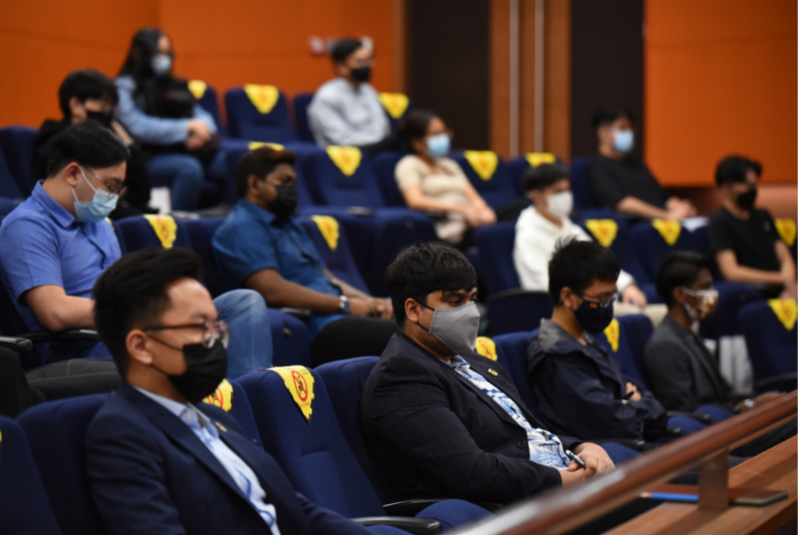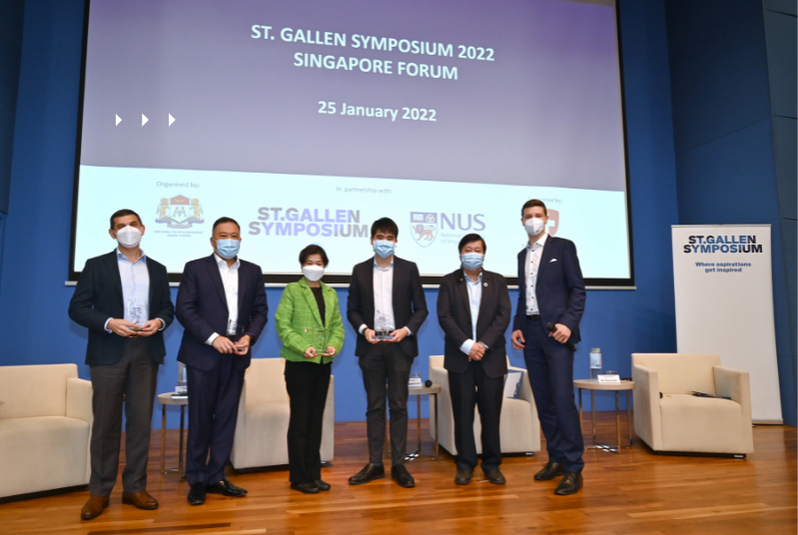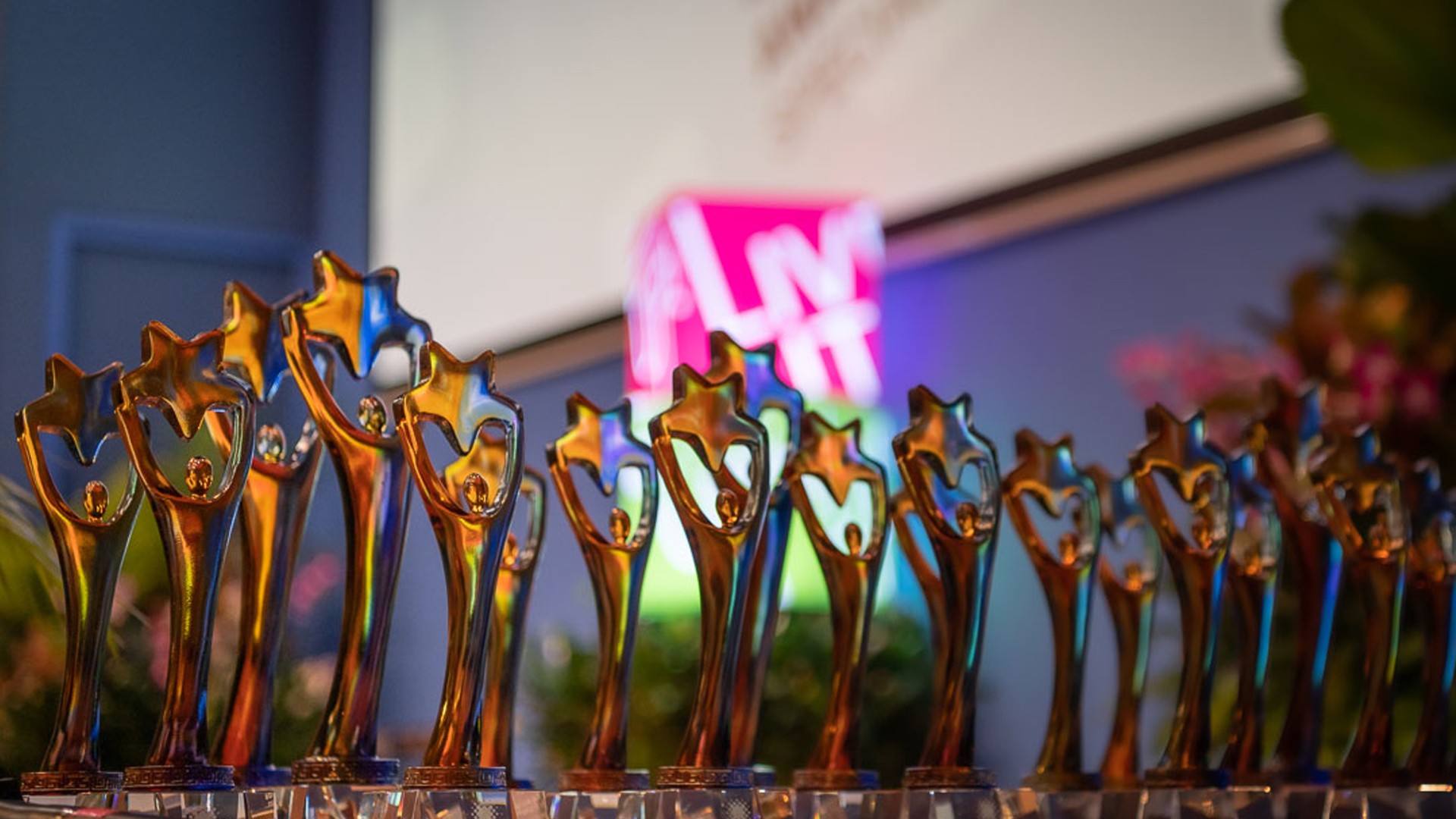On 25 January 2022, a familiar group of distinguished guests were invited to the 6th St. Gallen Symposium Singapore Forum 22 hosted at the NUS Shaw Foundation Alumni House. The in-person event was made possible with the collaboration of the National Youth Achievement Award (NYAA), the National University of Singapore as well as the Embassy of Switzerland.
International students from the University of St.Gallen who were on local exchange programmes helped facilitated the event as well. The event brought together perspectives from the various universities, as well as from industry leaders. Present in the panel were Ms Grace Fu, Minister for Sustainability and the Environment, Ms Jacqueline Poh, Managing Director of Singapore’s Economic Development Board, Mr Wong Kee Joo, chief executive officer of HSBC Singapore and Mr Warren Fernandez, editor-in-chief of SPH Media Trust’s English, Malay and Tamil Media Group. The panel boasted expertise from the public and private sectors, as well as the media.
Looking to the future, His Excellency (H.E.) Fabrice Filliez notes in his opening remarks on the growing importance of collaboration, especially between smaller countries, to benefit from the collective prosperity and sustainability. Recently, there has been plenty of discussion on the wonders that collaboration can bring, and the 6th St. Gallen Symposium Singapore Forum 2022 was an incubator for such sentiments. In a world that is increasingly connected virtually yet distanced physically, collaboration becomes and integral factor in all aspects of our work. While one might be quick to classify these sentiments as mere buzzwords, there is without a doubt, merit in fostering a dynamic environment that embraces collaboration among the silos of industry sectors and diverse stakeholders.
As an opener, the idea of a generational contract was introduced to the symposium. At first look, the preamble to the symposium suggests the interconnectedness and responsibility that each generation owes to the next generation. In addition, this “contract” suggests that these generations have a reliance on each other during different work stages and each generation is expected to honour the contract. Such a concept urges the individual to take initiative in securing such intergenerational “contracts”, and to look behind the curtain of collaboration for an opportunity. As problems are passed on from generation to generation, there is an innate responsibility for the previous generations to collectively collaborate with the current generation to achieve collective success. As no generation is truly isolated from another, a generational “contract” can spur and amplify collective strength for collective solutions.

Bringing the discussion back to our home ground, there is limitless potential for collaboration. Universities have always been an arena for multi-stakeholder interactions – undergraduates being able to have free discourse with seasoned professors, local students interacting with foreign exchange students, as well as being the meeting ground for public and private sectors. As NUS furthers its brand name as a “Strong Global and Asian University Brand”, NUS is in prime position to reap the benefits of collaboration. One cannot understate the power of opportunity, and the opportunity that NUS can bring to its students.
Firstly, collaborating brings advantages through education and provides an immersive student experience for NUS and its undergraduates. The resumption of Student Exchange Programmes to our partner universities stand testament to the benefits the collaboration brings. As we navigate out of the COVID-19 pandemic, the fresh perspectives that our undergraduates bring back from the new post-lockdown world are priceless. Even more interesting are the remote collaborations with our partner universities to offer virtual exchange programmes. With the increasingly fluid nature of education, we are indeed benefactors to the collaboration between educators and administrators. As aptly stated by Mr Wong Kee Joo, the CEO of HSBC, the word “crisis” in Mandarin translates to “danger”, but also “opportunity”. Truly, we should not be fearful of this “crisis” and stand at the sidelines, but rather to treat it as a golden opportunity to collaborate and learn from one another.
Secondly, we must acknowledge the shift in our economy and industry as we burn through social capital. Mr Warren Fernandez of the Singapore Press Holdings explains that as the world polarizes and insulated in social bubbles, collaborative advantage helps us break out of these negative trends as progressive students of higher learning. We can benefit from the diversity of views and opinions across different areas of expertise and scholarship in NUS’s holistic curriculum, allowing us to improve our educational footprint and experience to meet the growing demands of today’s workforce. Beyond academics, the wide range of co-curricular activities and sub-clubs enables NUS students to learn and grow together.
On a micro-level, strategic collaborations allow advantages to be enjoyed by all – from student groups to students, where everyone can connect and benefit from one another on a much deeper level. Undeniably, NUS boasts a strong culture of student leadership and organisations. From the Student Union to Societies and Interest Groups, collaboration is paramount to the efficiency and efficacy of the groups. While collaboration is not an alien term to the NUS fraternity, we must acknowledge the evolving nature of such collaborations. As meetings and dialogues move virtually, we are losing the physical element and opportunities for closer interaction that physical meetings bring. Nevertheless, we continue to make the best use of this “opportunity” by continuously seeking for opportunities for further collaboration and understanding.

During the panel discussion, one particularly interesting question was discussed – how do we balance the collaboration between big and small stakeholders? As NUS student groups enjoy the sustainability of larger student organisations, as well as the novelty of new student-led initiatives, there is room for everyone to have a part to play is ever-present. Moving forward, practising inclusivity and identifying a common purpose is the way to ensure that each individual has an opportunity to shine.
Collaboration among the community of stakeholders within the University will be an important part of creating a thriving culture of opportunity. While we acknowledge the practical limitations such as scarcity and competition, we must recognise and prioritise the emerging importance of interconnectedness which brings about abundance of opportunity that can be enjoyed by everyone.
Share:
Contributor
Writer: Mathew Kwok Kar Hou



